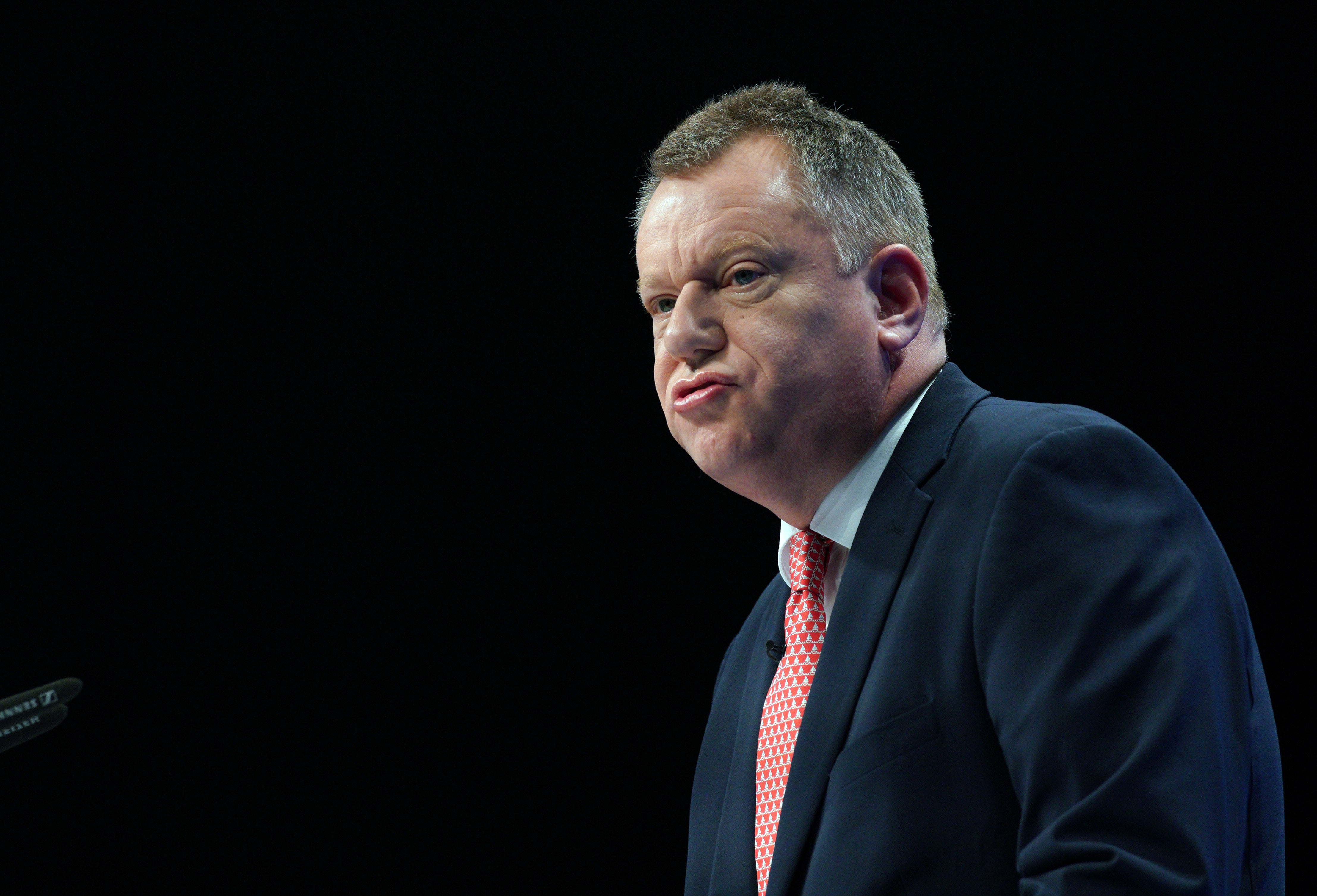Former Brexit minister says Boris Johnson has ‘no option’ but to rip up ‘part or all’ of NI protocol
Prospect of trade war brought closer as ministers ratchet up tensions with Brussels

Boris Johnson’s government “has no option” but to tear up “part or all” of the Northern Ireland Protocol, former Brexit minister David Frost has said.
Joint efforts to resolve the issues with the post-Brexit arrangement governing trade in Northern Ireland have “reached the end of the road”, the UK’s former negotiator in Brussels insisted on Thursday night – urging the prime minister to take unilateral action even if it means “confrontation” with the EU.
But Lord Frost’s stark intervention merely echoed the prevailing brinkmanship which brought the prospect of a trade war several steps closer on Thursday, with the government’s chief legal advisor refusing to deny reports she had approved the scrapping of large parts of the deal.
Brussels’ Brexit negotiator Maros Sefcovic earlier warned the EU would not give in to “threats or blackmail” and pleaded for “constructive engagement”, following crunch phone talks with foreign secretary Liz Truss.
Setting the scene for unilateral action, Ms Truss expressed “regret” at the EU’s rejection of British demands to revise Mr Sefcovic’s negotiating mandate, but issued an ultimatum that the UK would have “no choice but to act” unless the bloc backs down.
Her comments are expected to be followed within days by the publication of emergency legislation to override key elements of the protocol which Mr Johnson negotiated in 2019 and signed a year later.
Despite warnings from both Brussels and Washington against unilateral action, it was reported on Thursday that the attorney general Suella Braverman had advised that it would be lawful to scrap parts of the protocol because of the “disproportionate and unreasonable” way it has been implemented – handing Mr Johnson legal cover to make the move.
Speaking to BBC Question Time hours later, Ms Braverman did not deny the reports, and – in a major hint that the government is set to act – said that, although “there is a decision yet to be made” within Cabinet, action is becoming “painfully, apparently necessary”.
Ms Braverman has reportedly submitted evidence accusing Brussels of undermining the Good Friday Agreement by creating a trade barrier in the Irish Sea. She also warned of “societal unrest” in the region, which Ireland’s minister for European Affairs, Thomas Byrne said was “completely, completely and utterly incorrect” to pin on Brussels, in comments to RTE.
The attorney general’s assessment, however, echoed that of the prime minister, who told reporters in Stoke-on-Trent that the protocol has become a “real problem” which must be “fixed” because the “institutions set up under the Good Friday Agreement aren’t functioning” and political governance in Northern Ireland has “collapsed”.
Following last week’s historic elections, which saw Sinn Fein – which supports the protocol – win the largest share of the Assembly vote for the first time, the DUP are refusing to send a deputy to form an executive at Stormont until Westminster secures significant changes to the protocol.
“It’s clear that the unionist community won’t accept the protocol,” Mr Johnson said. “That’s obvious from what’s happened. We’ve got to fix it.”
DUP leader Sir Jeffrey Donaldson told reporters in Antrim on Thursday that government figures have told him to expect “movement” on the protocol “fairly soon”.
In his Daily Telegraph column, previewed on Thursday night, Lord Frost claimed the DUP’s actions had “forced the government’s hand”.
Warning that the Belfast Agreement was “on life support”, Lord Frost wrote: “Sometimes governments and their leaders must do the right thing”, adding that EU retaliation “would be disproportionate to the trade involved, only arguably legal and entirely self-defeating”.
But the former head of the government legal department, Sir Jonathan Jones QC, who quit over the Internal Market Bill, warned that introducing the necessary legislation to override the protocol would be “seriously problematic”.
“It feels like a rerun of what happened two years ago when the government was proposing to break international law,” he said, adding that such a move “would very severely damage the relationship we will continue to need with the EU post-Brexit”.
Any unilateral breach of the protocol by the UK could eventually lead to a trade war with Europe, with Brussels having signalled it could suspend the entire Brexit trade deal if the threat is carried out.
But legislation could take up to a year to pass through parliament, with stiff opposition expected in the House of Lords, and government sources earlier told The Independent that negotiations could continue throughout that time to try to avert a vastly expensive breakdown in trade relations during the cost-of-living crisis.
Not only did Mr Sefcovic tell Ms Truss that there was “no room” for the EU to change its negotiating mandate, but he later warned it would be “unacceptable” for the UK not to uphold its side of the international agreement.
“Honesty about what the UK signed up to is needed,” he said. “Honesty that the EU cannot solve all the problems created by Brexit and the type of Brexit chosen by the UK.
“We will not renegotiate the protocol, and the EU is united in this position. Unilateral action effectively disapplying the protocol is not the solution.”
Additional reporting by PA





Join our commenting forum
Join thought-provoking conversations, follow other Independent readers and see their replies
Comments